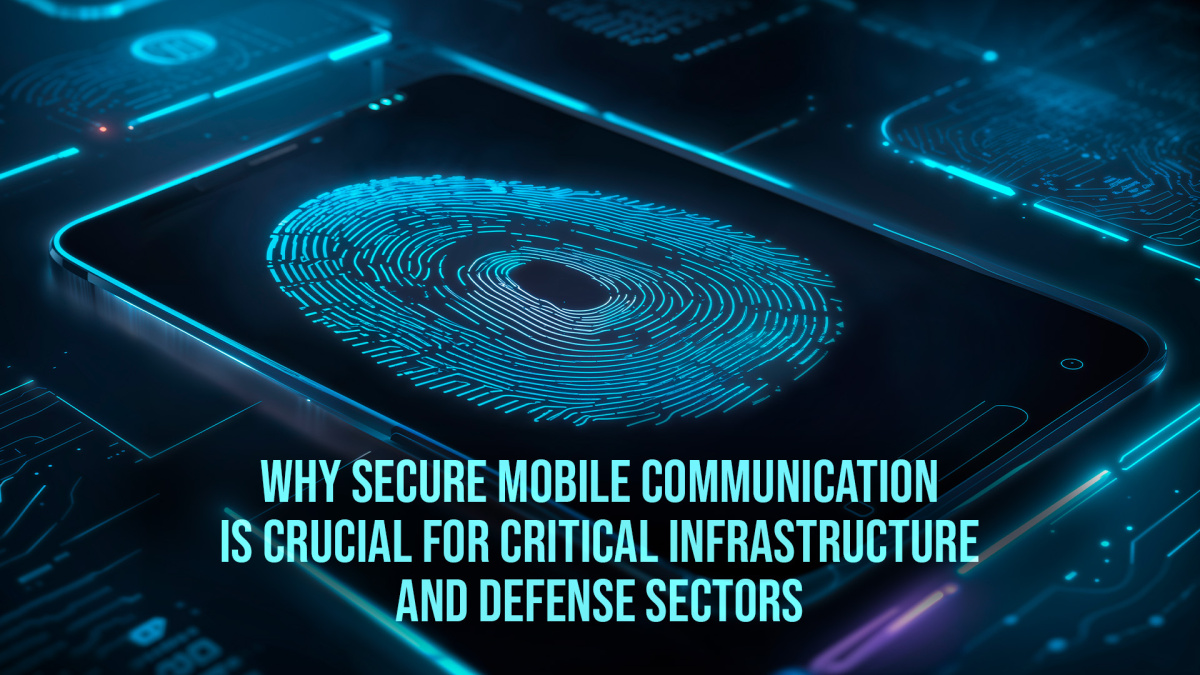Why Secure Mobile Communication is Crucial for Critical Infrastructure and Defense Sectors
In today's hyper-connected world, secure mobile communication is not a luxury but a necessity, especially for high-risk industries like critical infrastructure and defense. These sectors handle sensitive, classified, and mission-critical information that, if compromised, could result in catastrophic consequences. From safeguarding essential infrastructure operations to ensuring real-time, secure communication in military scenarios, encrypted communication solutions are key to mitigating risks and maintaining operational integrity.
The Sensitivity of Information in Critical Infrastructure and Defense
Critical infrastructure sectors, such as energy, transportation, healthcare, and defense, deal with highly sensitive data, including real-time operational commands, security protocols, and confidential strategic information. A single breach could lead to:
- National security threats: Exposure of confidential information related to critical infrastructure operations or defense strategies can result in vulnerabilities being exploited by adversaries, jeopardizing national security.
- Operational disruption: In both infrastructure management and defense, secure communication is essential to ensure that critical services and operations continue smoothly. A breach could interrupt operations, leading to significant damage or loss.
- Espionage: Cyber espionage remains a pressing concern, with malicious entities targeting communications within critical sectors to steal sensitive data or gain leverage for attacks.
The Role of Encrypted Communication in Protecting Information
Encryption serves as the first line of defense against unauthorized access to sensitive data transmitted through mobile devices. By converting information into a coded format that only authorized parties can decode, encryption ensures that even if the data is intecepted, it remains unreadable.
For critical infrastructure and defense sectors, the following features of encrypted communication solutions are vital:
- End-to-End Encryption: This ensures that messages are encrypted from the moment they are sent until they are received. Only the intended recipient can decrypt and read the information, minimizing the risk of interception during transmission.
- Secure Key Management: Sophisticated key management systems ensure that encryption keys are stored securely. This guarantees that even if a device is compromised, the encrypted data remains protected.
- Device-Level Encryption: Mobile devices often store highly sensitive information. Encrypted communication solutions ensure that data on these devices is fully secure, preventing unauthorized access in case of loss or theft.
Protelion Secure Communication Solution
Protelion’s comprehensive suite of secure communication solutions is tailored to the rigorous needs of the critical infrastructure and defense sectors. Two key offerings —Protelion Messenger and Armored Mobile — ensure that organizations can communicate safely, whether during routine operations or in high-risk environments.
- Protelion Messenger: A secure messaging platform that provides end-to-end encryption for voice, text, video and file-sharing services. Designed for seamless communication, it allows personnel in critical infrastructure and defense to exchange confidential information without the risk of interception. The platform supports encrypted group chats, voice calls, and multimedia sharing, safeguarding different communication channels.
- Armored Mobile: Built on the secure and reliable Pixel architecture, Armored Mobile adds an extra layer of security for mobile devices used in critical infrastructure and defense operations. With enhanced encryption protocols, it offers protection against cyber threats and physical tampering. Features like secure key management, device-level encryption, and protection against network threats ensure that sensitive data remains secure even in the most demanding environments.
The solution provides a reliable, easy-to-use platform for secure mobile communication, ensuring that critical information remains confidential and protected from cyberattacks and espionage. Whether it's coordinating infrastructure operations or defense missions, Protelion Messenger and Armored Mobile work together to deliver unparalleled security, even in the most challenging environments.
